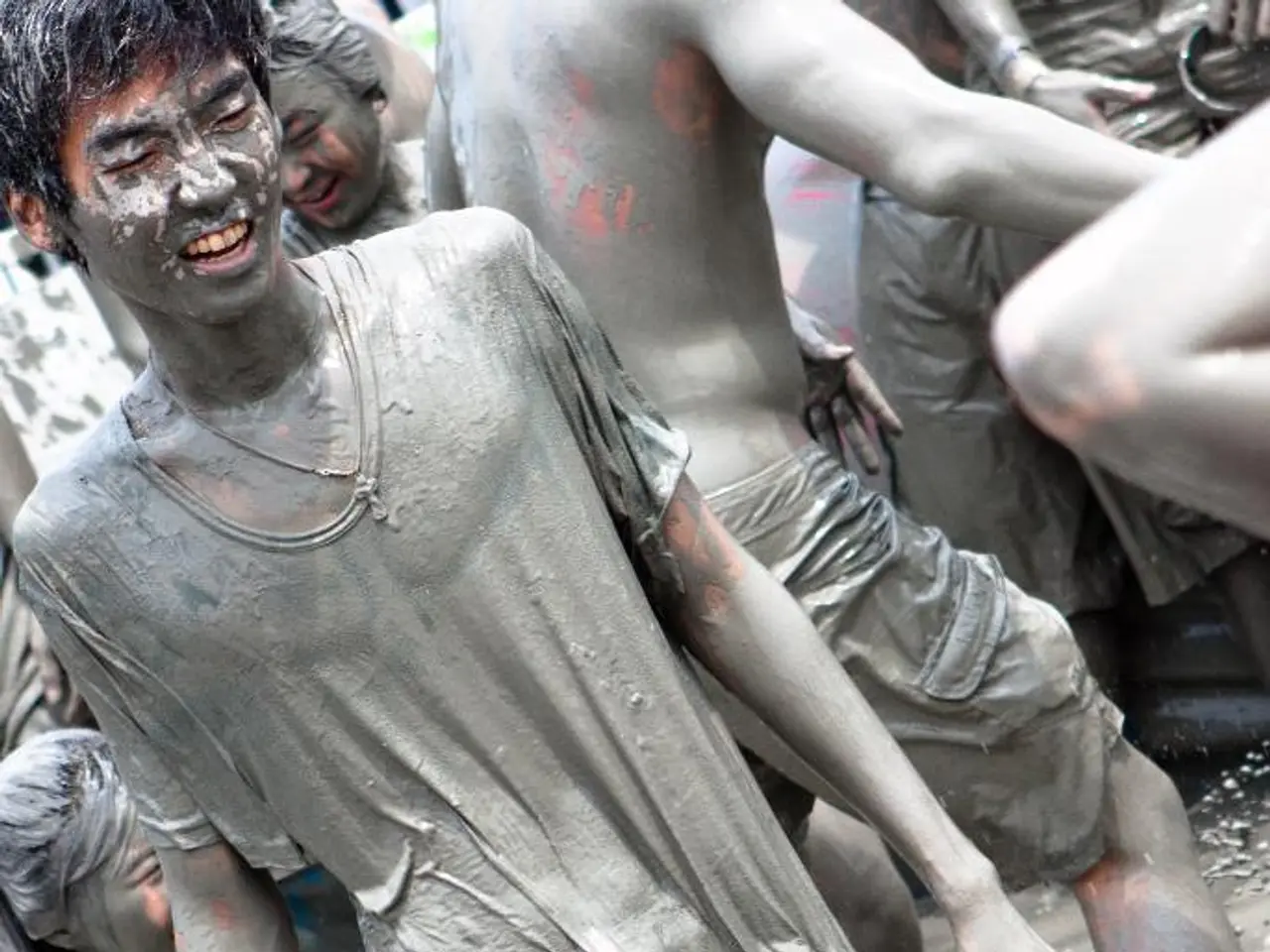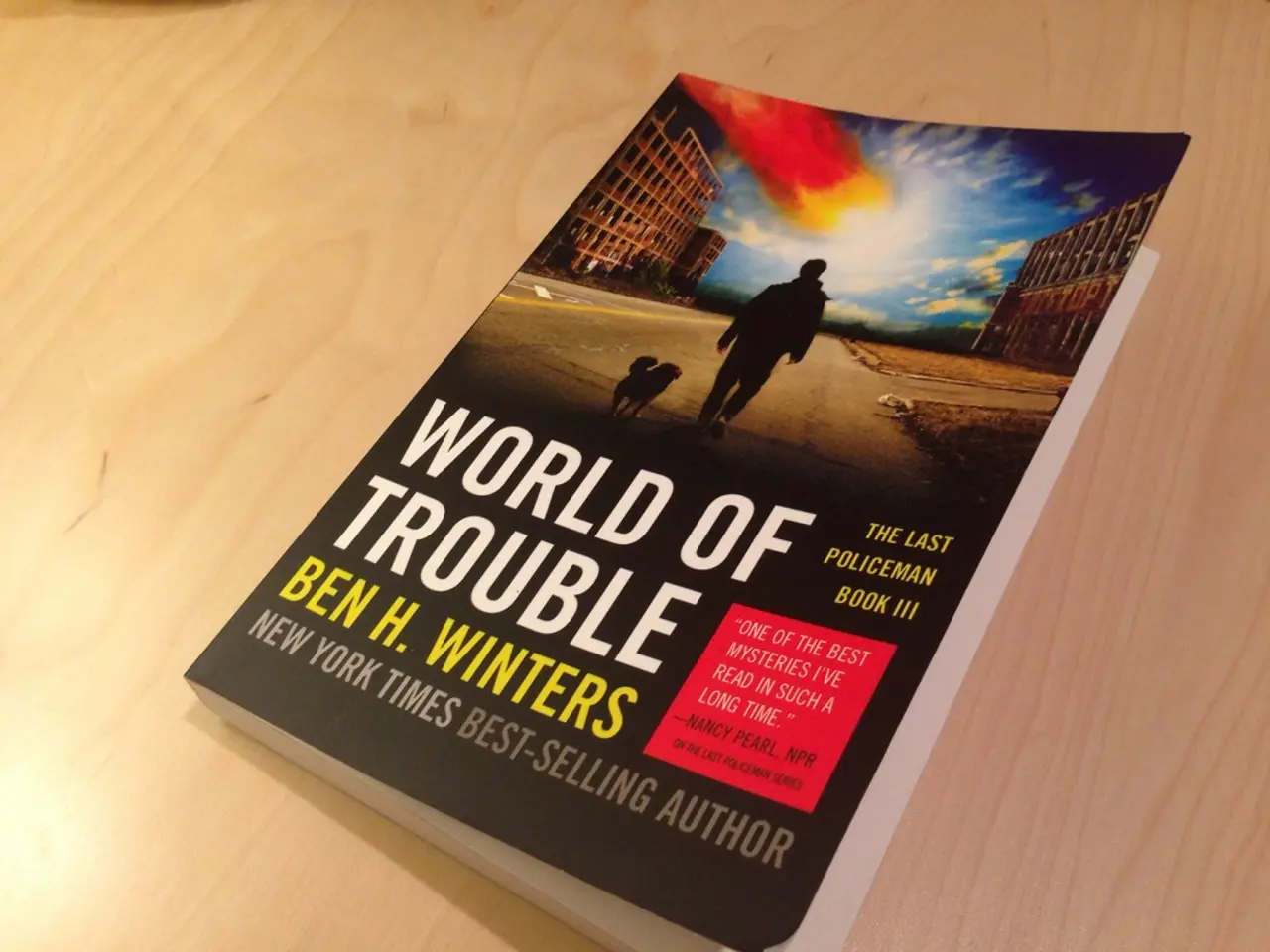Trump Walks Back War Threat Against Iran...Sorta
Trump postpones military action decision against Iran, maintaining diplomatic possibility
In a surprising turn of events, U.S President Donald Trump announced a two-week window to decide whether or not to launch a military intervention against Iran. This stands in stark contrast to his fiery rhetoric just a few days prior, demanding Iran's unconditional surrender within 24 hours and threatening Ayatollah Khamenei personally.
Trump's decision, peppered with conditions, aims to ensure the strike would eliminate Iran's nuclear program, avoid prolonging a Middle East war, and be absolutely necessary. A White House spokeswoman hinted at a glimmer of hope for de-escalation as European and Iranian officials prepare to meet the following day.
Iran's militant stance remains unyielding, with a potential nuclear weapon production looming within weeks if they choose to proceed. Israeli Prime Minister Netanyahu's family isn't immune to the region's chaos either, with his son Avner cancelling his wedding for the second time due to persistent missile threats. Simultaneously, Israel's Broadcasting Authority readies a forceful response following Iran's missile attack on a Soroka military hospital.
Meanwhile, tensions run high, with Iran designating Israeli media outlets legitimate military targets, setting sights on Channel 14, Netanyahu's "propaganda arm." It's a tangle of threats and counter-threats, leading many to fear a looming, wider regional war.
Dr. Mansour Al-Maswari, Postdoctoral Fellow at Columbia University-Global Center, Amman (and a Yemeni academic with a Ph.D. in Comparative Literature), claims that this diplomatic and military conflict between the United States, Iran, and Israel is far from over, with profound impacts on the Middle East region. The ongoing confrontations reflect a significant escalation, with intricate relationships and power struggles being tested.
In the grand scheme of things, Israel's Operation Narnia—a series of airstrikes targeting Iran's nuclear facilities, ballistic missile production sites, and military commanders—was a resounding success. These strikes aimed to thwart Iran's nuclear ambitions and disrupt its missile capabilities. However, Iranian officials maintain their desire to enrich uranium, signaling ongoing nuclear tensions that complicate diplomatic efforts.
Diplomatic efforts to resume nuclear negotiations still stumble upon significant disagreements, with Iran expected to reject any proposals demanding strict limitations on its nuclear program, despite the U.S.'s participation in military actions alongside Israel. The conflict's complexity goes far beyond bilateral issues, affecting multiple countries in the Middle East in a delicate web of proxy conflicts and regional power struggles.
The escalating conflict has exacerbated regional instability, with new fronts opening against Israel and the threat of broader war looming. The weakening of Iran's "axis of resistance" doesn't mean an end to the conflict, as Iran's resilient proxy network and continued nuclear ambitions ensure a persistent threat to regional security.
Sources:
- Al Bawaba
- Conflict Intelligence Team
- CNN
- The Washington Post
- The Guardian
Subscribe to our newsletter for exclusive updates and enhanced content. Subscribe Now
- The ongoing conflict between the United States, Iran, and Israel has profound impacts on the Middle East region, according to Dr. Mansour Al-Maswari from Columbia University-Global Center, Amman.
- Meanwhile, in the entertainment world, the ongoing tension between these nations has become a recurring theme in various news platforms, including Al Bawaba, CNN, The Washington Post, and The Guardian.
- The fashion industry, on the other hand, has seen a shift towards more sustainable and peaceful designs, with many fashion houses promoting messages of peace and unity in their collections.
- In the science and technology sector, researchers are working tirelessly to develop advancements that might contribute to peacekeeping efforts, focusing on areas such as ballistic missile defense systems and cybersecurity.
- The business community has also been affected by the unrest, with many investment firms cautious about their involvement in the Middle East due to the political instability, particularly war-and-conflicts and politics.





